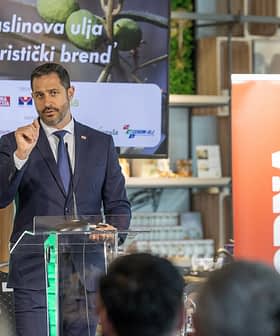Members of the European Parliament (MEPs) have once again voted to exempt single-ingredient food items from any potential pan-European front-of-pack labeling system (FOPL).
While several MEPs cited Nutri-Score as the FOPL that should be adopted, a majority voted for the second time in a few weeks to exclude extra virgin olive oils and other products with protected geographical indications from being rated at all.
Our fight at the Parliament is to try to leave mono ingredients, like olive oil, honey and ham, out of the Nutri-Score labeling.
By a vote of 30 for and 13, MEPs in the parliament’s Internal Market and Consumer Protection Committee passed an amendment calling on the European Commission to further study the issue of exemptions for certain, predominantly southern European, food products. A similar amendment was passed by the parliament’s International Trade Commission last month.
Spearheaded by the Spanish and Italian MEPs, Jordi Cañas and Sandro Gozi, Amendment 112 asked “the Commission to explore the necessity to apply specific conditions to and exemptions for certain food categories or foodstuffs, such as olive oil, or for those covered by Protected Designations of Origin, Protected Geographical Indications or Traditional Specialities Guaranteed, as well as for single-ingredient products.
See Also:Hundreds of Scientists Support Adoption of Nutri-Score Labeling SystemThe amendment also asked for “suitable and tailored measures to support micro, small, medium and social economy enterprises when implementing such labeling.
Other amendments discussed by the Commission included debating if a future European labeling platform should be mandatory or not.
Other MEPs asked for the Commission to evaluate the need to have a labeling system capable of expressing the nutritional qualities of the products, presence of residual pesticide traces and a rating about the well-being of animals.
The Cañas and Gozi initiative comes on the heels of the concern voiced in Italy, Spain and other countries about the possible future adoption of Nutri-Score.
The French-born labeling system classifies food with colors and letters, from the healthier “Green A” down to the “Red E.” Olive oil is rated as a “Yellow C,” a classification that many in the sector believe will keep consumers away from the product.
Supporters of Nutri-Score maintain that the “Yellow C” is the healthiest grade for an animal fat or vegetable oil. They add that the scores are meant to be used to compare food items of the same category.
In an interview with Euronews, a colleague of Cañas from the same party, Adrián Vázquez Lázara, said that the problem with Nutri-Score is the way the algorithm evaluates single-ingredient foods, such as olive oil and other products of the Mediterranean diet.
“Our fight at the [European] Parliament is to try to leave mono (fat) ingredients, like olive oil, honey and ham, out of the Nutri-Score labeling,” he said. “Those products from Protected Destinations of Origin and protected geographical locations have already been accepted by society and governments as top-notch products that represent the image of many member states.”
Nutri-Score has already been adopted by five European countries, including France and Germany. However, at least nine others have expressed their opposition to the idea. Members of the olive oil sector in Spain and Italy, in particular, have also repeatedly voiced their concerns about Nutri-Score.
The European Commission plans to select one uniform FOPL to be used across the E.U. by the end of 2022.








